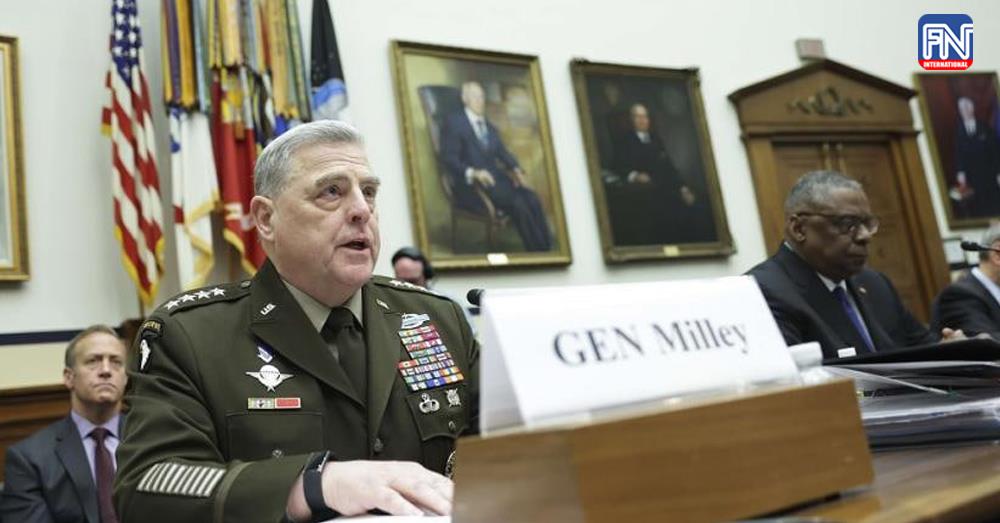WASHINGTON, April 6 (AP) — The United States should look at the development of more bases in Eastern Europe to protect against Russian aggression, but rotate forces through them rather than make permanent deployments, the top U.S military officer told Congress on Tuesday.
Army Gen. Mark Milley, chairman of the Joint Chiefs of Staff, said the basing could be funded by other countries such as Poland and the Baltics that want more U.S. troops. Defense Secretary Lloyd Austin said any effort to expand security in Eastern Europe is a “work in progress” that probably will be discussed at the NATO summit in June.
Milley and Austin were testifying before the House Armed Services Committee on the 2023 budget proposal, but much of the focus of the hearing was the Russian war against Ukraine and what the U.S. can do to better help Ukraine and strengthen security across Europe.
Milley was asked about the need to reallocate forces to Europe’s eastern flank, where NATO allies are worried that they may be Russia’s next target.
“My advice would be to create permanent bases but don’t permanently station (forces), so you get the effect of permanence by rotational forces cycling through permanent bases,” he said. “I believe that a lot of our European allies, especially those such as the Baltics or Poland and Romania, and elsewhere — they’re very, very willing to establish permanent bases. They’ll build them, they’ll pay for them.”
Austin added that he recently visited and spoke with leaders in the Baltics, noting that they made it clear they value U.S. troops there. “We’ll continue to work with NATO to assess what the requirements will be moving forward,” Austin said. “We will be part of that solution.”
The Pentagon is continuing to review its troop numbers across Europe, and whether to add more or shift some of those already there to other locations. Milley said Tuesday that while there are no decisions yet, there’s a possibility, if not a probability” of increase U.S. troops in Europe, and that need could be filled by rotational forces.
NATO Secretary-General Jens Stoltenberg announced last month that NATO is creating four new battlegroups, which usually number between 1,000 troops and 1,500 troops, to send to Hungary, Slovakia, Romania and Bulgaria. NATO allies are set to discuss additional security measures at the upcoming summit.
Milley has advocated using rotational forces more around the globe to defray the costs of permanently stationing troops and their families in allied countries at risk of war, such as South Korea and in the Persian Gulf. He said using this would eliminate some of the costs associated with schools, housing and other such services.
Rotational forces deploy for shorter periods of time. Permanent forces are often deployed for two years to three years.
Milley also agreed that Moscow’s aggression in Ukraine, and its ongoing demands that the U.S. and NATO reduce troops and arms in European countries along Russia’s borders, signal a lengthy conflict in the region that extends beyond Ukraine.


